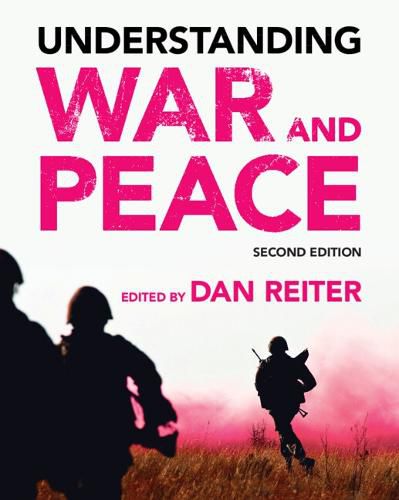Readings Newsletter
Become a Readings Member to make your shopping experience even easier.
Sign in or sign up for free!
You’re not far away from qualifying for FREE standard shipping within Australia
You’ve qualified for FREE standard shipping within Australia
The cart is loading…






Written for undergraduate students studying the politics of conflict and cooperation, Understanding War and Peace considers the roots of global conflicts and the various means used to resolve them. Edited by Dan Reiter with contributing authors who are all leading scholars in the field, it balances approachable, engaging writing with a conceptually rigorous overview of the most important ideas in conflict studies. Focusing on concepts, policy, and historical applications, the text minimizes literature reviews and technical jargon to engagingly present all major topics in international conflict, including nuclear weapons, peacekeeping, terrorism, gender, alliances, nuclear weapons, environment and conflict, civil wars, public opinion. Enriching the textbook pedagogy, each chapter concludes with a summary of a published quantitative study to introduce students with no prior quantitative training to quantitative analysis. Online resources for instructors include an instructor manual, a test bank and contemporary case studies for each chapter topic regarding the conflict in Ukraine.
$9.00 standard shipping within Australia
FREE standard shipping within Australia for orders over $100.00
Express & International shipping calculated at checkout
Written for undergraduate students studying the politics of conflict and cooperation, Understanding War and Peace considers the roots of global conflicts and the various means used to resolve them. Edited by Dan Reiter with contributing authors who are all leading scholars in the field, it balances approachable, engaging writing with a conceptually rigorous overview of the most important ideas in conflict studies. Focusing on concepts, policy, and historical applications, the text minimizes literature reviews and technical jargon to engagingly present all major topics in international conflict, including nuclear weapons, peacekeeping, terrorism, gender, alliances, nuclear weapons, environment and conflict, civil wars, public opinion. Enriching the textbook pedagogy, each chapter concludes with a summary of a published quantitative study to introduce students with no prior quantitative training to quantitative analysis. Online resources for instructors include an instructor manual, a test bank and contemporary case studies for each chapter topic regarding the conflict in Ukraine.